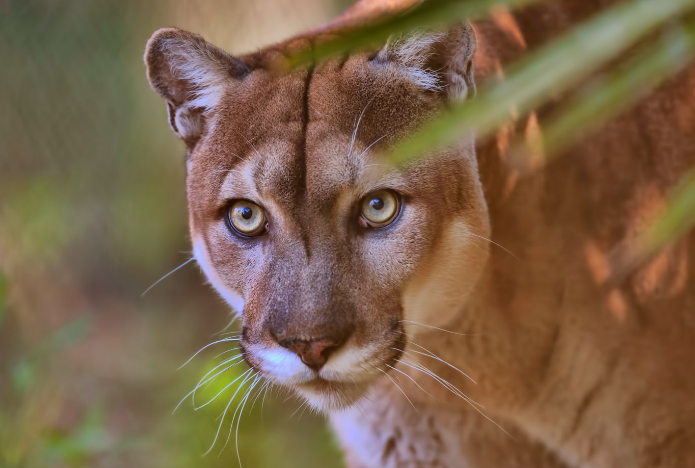"Welcome to panther country," Brian Kelly says when I met him at a busy intersection in East Naples, Florida, a stone's throw from a gas station and an urgent care center.
“欢迎来到美洲狮的国度。”我和布莱恩·凯利在佛罗里达州东那不勒斯一个繁忙的十字路口碰面时,他对我说。
Kelly, a state panther biologist, points east into the sprawling subdivision where he lives. A panther was caught on camera just a quarter mile away, he says, and another one made it across the six-lane road we're standing beside.
凯利是州政府单位的美洲狮生物学家,说这话时他朝东指着一片蔓延扩张的住宅区,他就住在那里。凯利说,有人在半公里外拍到一只美洲狮的踪迹,也有人拍到美洲狮穿过我们身旁的六车道公路。

Yet another panther, an eight-year-old female named FP224, lives nearby. She's been hit by a car twice, breaking a leg each time. She was treated by veterinarians and released after both accidents. To look for signs of her, we drive to Kelly's house, next to a patch of forest where she recently denned and birthed at least three kittens. It's the wet season, when panther tracks typically are wiped out by rain, but we get lucky.
还有另一只美洲狮就住在附近,它是命名为FP224的八岁大母美洲狮,出过两次车祸,每次都断了一条腿。两次事故后它都经兽医治疗后放归。为了寻找它的踪迹,我们驱车前往凯利家。凯利家旁边有一片森林,这只母美洲狮最近在那里筑了巢穴,产下至少三只幼崽。此时恰是雨季,美洲狮的踪迹往往会被雨水冲刷掉,但我们很幸运。
"There she is," Kelly says, pointing to large paw prints, about the size of my fist, in the soft sand. We follow the prints through tall pines and sabal palms festooned with air plants. A check of a motion-triggered camera trap Kelly placed there reveals that FP224 walked by just before 9 p.m., two evenings earlier.
“它在那里。”凯利指着软沙中约有我拳头大小的大掌印说道。我们随着足迹穿过高大的松树与铁兰点缀的菜棕。凯利设在那里的动态触发式自动相机显示,FP224在两天前的晚上9点前曾路过此处。













